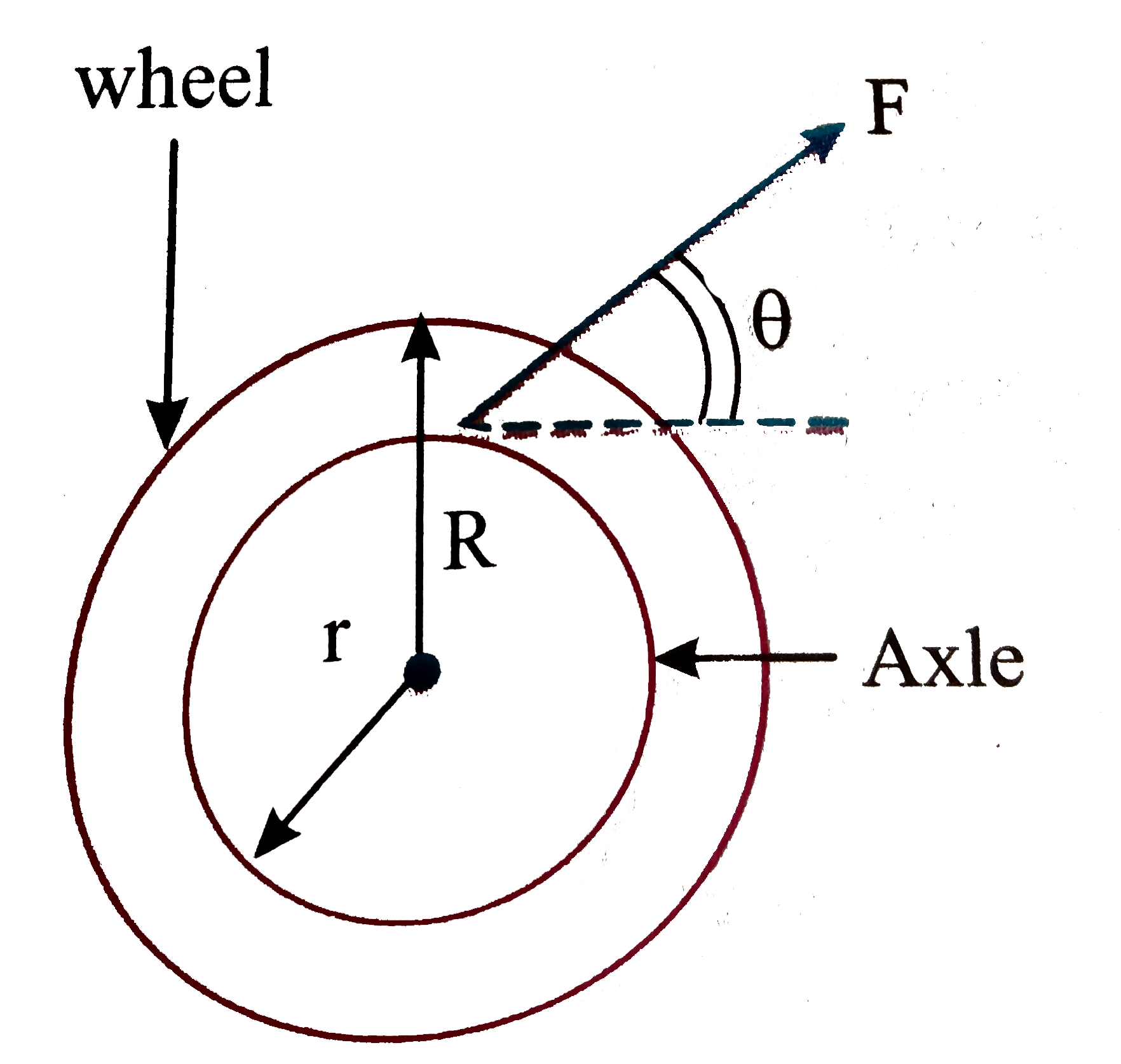A wheel of radius `R`, mass `m` with an axle of radius `r` is placed on a horizontal surface. Its moment of inertia is `I=mR^(2)`. Unwinding a rope from its axel a force `F` is applied to pull it along a horizontal surface. The friction is sufficient enough for its pure rolling `(angletheta=0^(@))`

Find the linear acceleration of the wheel
A. `(F[I//m-Rr])/([(I//m)+r^(2)])`
B. `(2F[(I//m)-Rr])/([(1//m)+r^(2)])`
C. `(F[(2I//m)-sqrt(2)Rr])/([(I//m)+r^(2)])`
D. `(F[(Isqrt(2)//m)-Rr])/([(I//m)+r^(2)])`

Find the linear acceleration of the wheel
A. `(F[I//m-Rr])/([(I//m)+r^(2)])`
B. `(2F[(I//m)-Rr])/([(1//m)+r^(2)])`
C. `(F[(2I//m)-sqrt(2)Rr])/([(I//m)+r^(2)])`
D. `(F[(Isqrt(2)//m)-Rr])/([(I//m)+r^(2)])`

Correct Answer – A
`F-f ma, F(r)+f(R)=Ialpha`
`a=Ralpha`
Solving `a=(F(r+R)R)/((R+mR^(2)))` and `f=F-ma`
`=(F[(I//m)-Rr])/([(I//m)+r^(2)])`